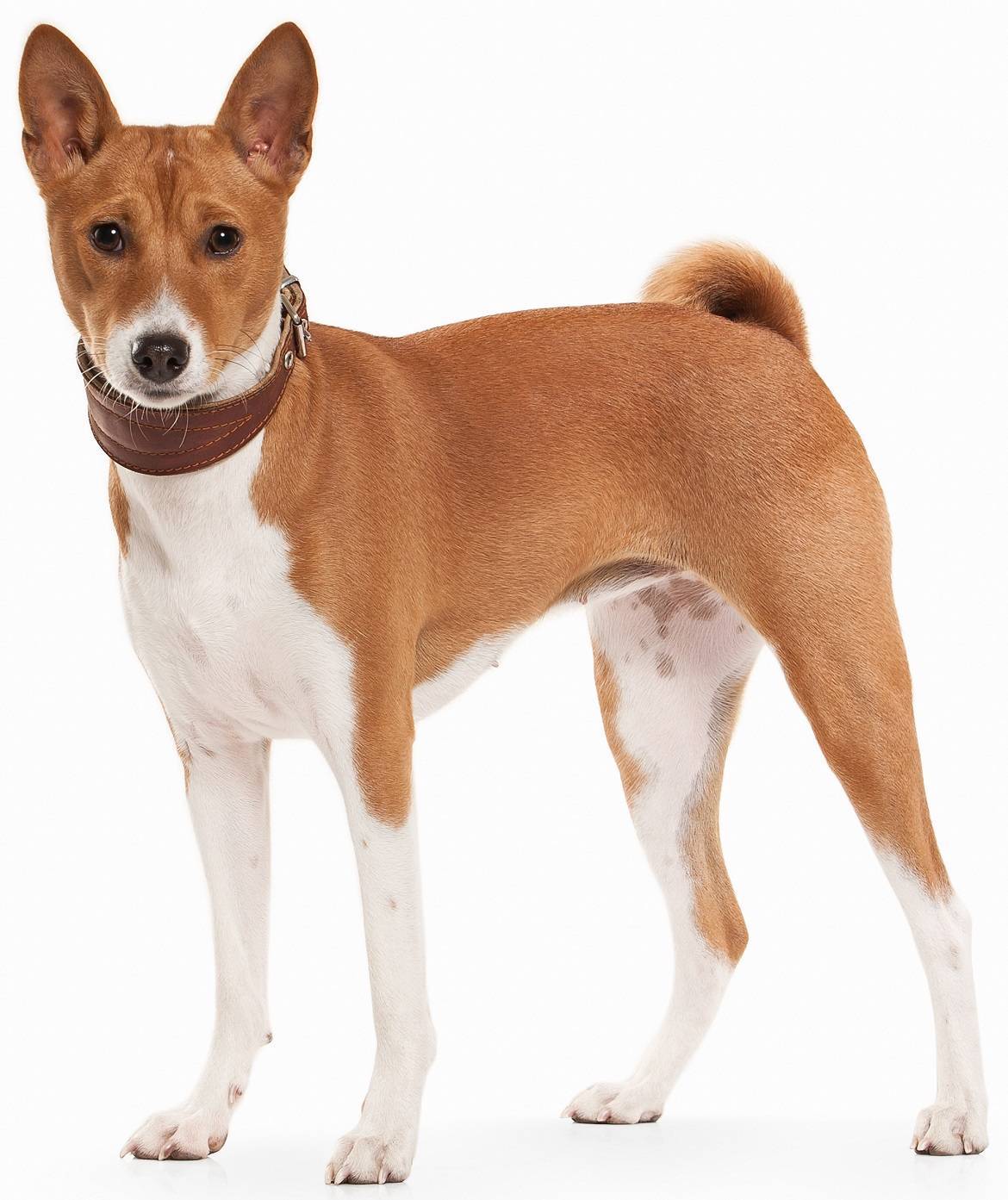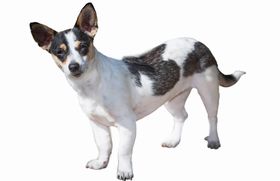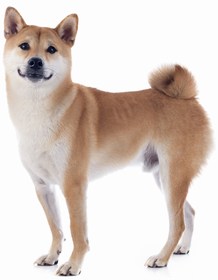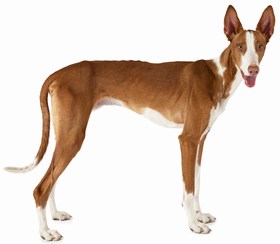
Paws ‘N’ Pups Quickview
Size
| Energy Level
| Trainability
| Paws ‘N’ Pups Rank
|
Characteristics
| Physical Characteristics: Height: 15-17” Weight: 20-26 lbs. Energy Level: Moderate – High | Colors: The American Kennel Club recognizes the Basenji in the following colors:
|
Health & Longevity
Average Life Span: 12-16 years
Spry and energetic, the Basenji is a rambunctious pup with fairly good health. However, there are a few serious health conditions that your Basenji could develop in their lifetime. Plus, the Basenji is still prone to the usual health conditions that could plague any pup of any breed at any age. These universal health issues for dogs include heartworms, bone cancer, heart disease, and the parvo virus. Most of the time, pet owners can opt to vaccinate their pups from a few of the diseases listed, which is why it’s important to keep your Basenji updated on all vaccinations. And always keep semi-annual vet check-ups.
Two serious health concerns that are breed-specific to a Basenji include:
Fanconi Syndrome
This condition occurs when the kidneys fail at transporting nutrients throughout the body, resulting in high concentrations of protein, glucose, sodium, and phosphate in the kidney. Pups with this condition lack proper nutrition because their kidneys waste the nutrients into their urine. Symptoms are subtle at first, but might include excessive thirst, excessive urination, depression, loss of appetite, severe weight loss, and abnormal growth. This condition is incurable, but it can be managed with lifetime, vet-prescribed medication and constant care.
Basenji Enteropathy
This condition is chronic irritation of the bowels, resulting in bouts of violent vomiting and diarrhea. Vet-prescribed, medicated kibble is a conventional treatment, and pet owners have to be careful of what they feed their pets to avoid inflammation episodes. Most often, this condition requires lifelong management, as most vets are unsure of the genetic code that leads to this defect.
Other health issues that may complicate the quality of life your Basenji experiences are epilepsy, hypothyroidism, progressive retinal atrophy, and umbilical hernias. The average lifespan for a Basenji is 12 to 16 years. This is a lengthy lifespan that surpasses most purebreds by 2-3 years.
Temperament & Train-ability
Bouncy and affectionate, the Basenji boasts an independence streak that can sometimes get him into trouble. These pups are very, very energetic, so exercise is paramount to their overall health and happiness. These dogs, bred to be hunters, often follow their instincts when outdoors. It would be great to let him romp and play and run free in a fenced-in backyard, but watch out for small animals, such as squirrels, chipmunks, and cats, as your Basenji might chase (and sometimes maim or kill) them.
Aside from a fenced-in backyard, you could also let your Basenji run around with similar-sized dogs at a dog park. He gets along well with pups of a similar size, but smaller dogs set off his instinct to hunt and chase. Socialization is important, so be sure you introduce your pup to other dogs (and people) from a young age.
Training a Basenji is a challenge because of their natural independence and dominance. These pups are alert, energetic, and always on the watch for something to happen. This makes them excellent watchdogs and guard dogs, but you have to instill obedience in them first. Establish yourself as the leader of the pack, and use a clear, concise tone in a positive, strong voice to grab and hold their attention. Be patient with your Basenji and offer treats, praise, and encouragement whenever possible.
Grooming
Basenji pups have a unique method for staying clean, and many of these dogs hate to get dirty. They often wash themselves, like cats, but most can only reach so far to clean. Bathe these pups at least once a month. Or, take him to a professional groomer for the works (i.e. a bath, brush, and trim).
When it comes to brushing your Basenji, these pups have short, smooth, soft coats that require very little attention. Run a medium-bristled brush through his coat 1-2 a week. These pups are also low shedders year-round, so no worries about having to vacuum up excess hairs.
Diet
The Basenji has a big appetite, so feed these pups on a schedule to keep them feeling full and satisfied. 2 cups of dry, high-quality kibble divided into two meals per day would be enough for these purebreds. However, make sure the kibble features whole grains, lean meats, and fresh veggies as the top three ingredients on the label. Avoid fillers and by-products as much as possible. It might be a bit more expensive to invest in a good brand, but your Basenji’s health is 100% worth it.
Looking for a Basenji?
 Find A Basenji Breeder |  Basenji Puppies For Sale |  Adopt A Basenji |
Cost
Basenjis are a rare purebred that most trustworthy, reputable breeders only birth once a year. The small litter sizes and overall breeding regimen of these breeders mean there are fewer pups for pet owners who have their heart set on a Basenji. There is usually a waiting list for annual litters, so you really have to plan and prepare for your new companion.
If you get lucky and find a reliable breeder with an upcoming Basenji litter, the average costs for Basenji puppies will vary from $500 to $1,000. Most breeders include a microchip, initial health check, and first vaccinations with the asking price. But you still want to make sure you know all of the breeder requirements, inclusions, and expectations before investing in a Basenji from their litter. Healthy puppies from a loving environment should be one of your top priorities.
Adoption-wise, you could check your local animal shelter for a Basenji, but you would be more apt to find a crossbreed of a Basenji and something else. These pups need love and happy, healthy homes too, even if their bloodline is a bit muddled. Adoption fees vary from state, to county, to shelter, but the average is between $75 to $200.
Paws ‘N’ Pups Ranking
Paws ‘N’ Pups ranks every breed out of 4 with 1 being easiest to integrate into your life and 4 being the toughest – The lower the ranking the better.
Ranking takes into account a few basic factors including cost, skill level needed, high vs low maintenance and how critical regular training is to success. Basenjis are a 2.5 on the integration scale. These pups are difficult to train due to their independence, they chase and sometimes harm smaller animals like cats and smaller dogs, and their initial cost is a bit expensive. On the upside though, these pups are great with older children, love attention, and often show affection to those who have bonded with them. If you have the time, energy, and patience, you should give the Basenji a chance. These purebreds would make great companions once you’ve bonded with and trained them.
Breeds Similar To Basenji
 Rat Terrier |  Shiba Inu |  Beagle |  Ibizan Hound |




